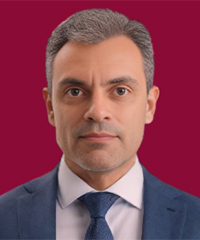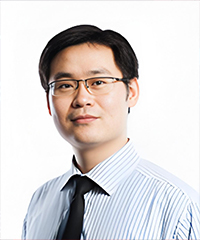Organization

Adjunct Professor, Botswana University, Botswana
Visiting Professor, Nairobi University, Kenya
Temporary Professor, Queen Mary University of London, London, UK
Pier Paolo Piccaluga is an Associate Professor of Pathology at the Department of Medical and Surgical Sciences at the Bologna University School of Medicine. He is also a co-founder and Executive Physician at the Biobank of Research, IRCCS S. Orsola-Malpighi Hospital in Italy. He has led the Molecular Hematopathology Laboratory for many years.In 2018, he was appointed to teach at Queen Mary University of London (UK) and Jomo Kenyatta University of Agriculture and Technology in Nairobi (Kenya), and since 2023, at the University of Nairobi and the University of Botswana. He is the author of several international publications indexed in the Current Contents (including Nature Medicine, Journal of Clinical Investigation, Journal of Experimental Medicine, Journal of Clinical Oncology, Blood, Lancet Oncology, and Lancet Infectious Diseases, with a total impact factor >1,000, a mean impact factor >6, and an H-index of 62 (ranked among the VIA-Academy Top Italian Scientists). He is the author of several presentations at national and international conferences.Dr. Piccaluga has participated in several clinical trials as a coordinator or sub-investigator and has won multiple awards for his contributions to study and research. He has served as a Principal Investigator (PI) in various research projects funded by nationally and internationally recognized organizations. He is the Editor-in-Chief of the World Journal of Hematology, Digital Medicine and Healthcare Technology, Advances in Precision Medicine, and the Journal of Cancer Biomoleculars and Therapeutics.

Zefeng Wang, Distinguished Professor and Doctoral Supervisor of Huzhou University, Director of the Institute of Perception and Control Technology, College of Information Engineering, Huzhou University. He successively obtained a Bachelor's degree in applied Physics, a Master's degree in mechanical and Systems Engineering, and a Doctor's degree in mechanics, electronics, acoustics and robotics from Université Paris VI. After that, he served as an Associate Professor at the Catholic University of Paris. He moved to China in 2017 as a Distinguished Professor and concurrently served as a Guest Professor at JUNIA Grande école d'ingénieurs. At the end of 2020, he joined Huzhou University as a Distinguished Professor and jointly trained doctoral students with Sorbonne University and Lille University.
→ Academic Committee
Biraja Ghoshal, University College London, UK
Congcong Zhou, Zhejiang University, China
Eleni Kaldoudi, Democritus University of Thrace, Greece
Habib Zaidi, Geneva University, Switzerland
Hongjun Li, Beijing You An Hospital Affiliated to Capital Medical University, China
Huipeng Chen, Fuzhou University, China
Imed Ben Dhaou, University of Turku, Finland
Jenna Seetohul, University of Kent, UK
Jia-Horng Lin, Feng Chia University, Taiwan, China
Lejla Alic, University of Twente, Netherlands
Michel Mickael, Institue of Genetics and Animal Biotechnology Polish Academy of Science, Poland
M. Imran Khan, PHC Global, Pakistan
Mohammad Ali Moni, The University of Queensland, Australia
Murtaza Hasan, Department of Biotechnology, The Islamia University Bahawalpur, Pakistan
Nan (Tori) Xiao, University of the Pacific, USA
Olga Rybytska, Lviv Polytechnic National University, Ukraine
Ol'Tunde Ashaolu, York Teaching Hospital NHS Foundation Trust, UK
Piyanee Yobas, National University of Singapore, Singapore
Raheleh Kafieh, Durham University, UK
Rajanikanth Aluvalu, Deemed University, India
Thomas J. Vogl, Universitätsmedizin Frankfurt, Germany
→ Organizing Committee
Changbin Yu, Shandong First Medical University & Shandong Academy of Medical Sciences, China
Cong Yan, Beijing University of Chinese Medicine, China
Linhua Jiang, Overseas Chinese Science and Technology Innovation Alliance
Huifang Dai, Fudan University, China
Jianlin Lou, Huzhou University, China
Xiao'ou Li, Shanghai University of Medicine & Health Sciences, China
